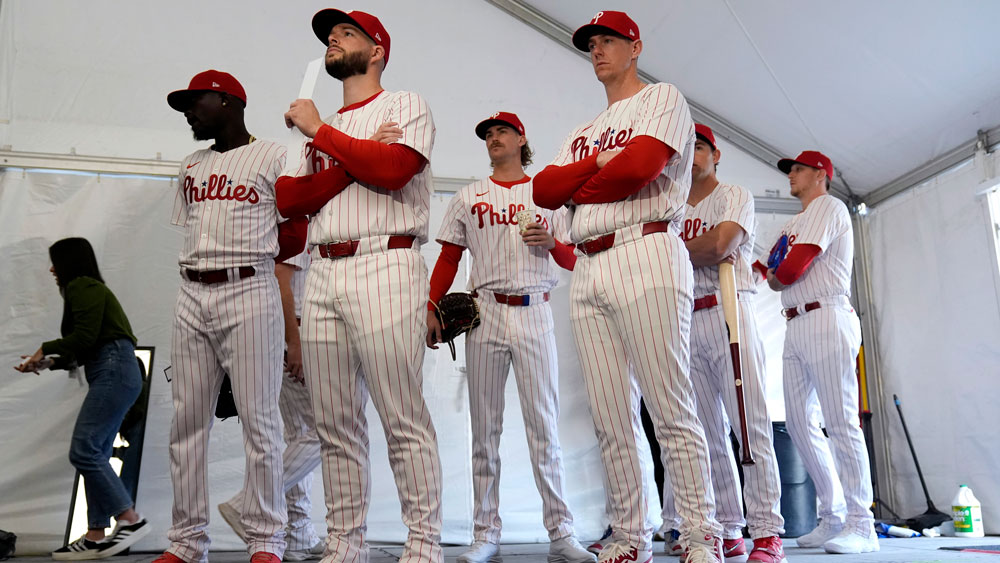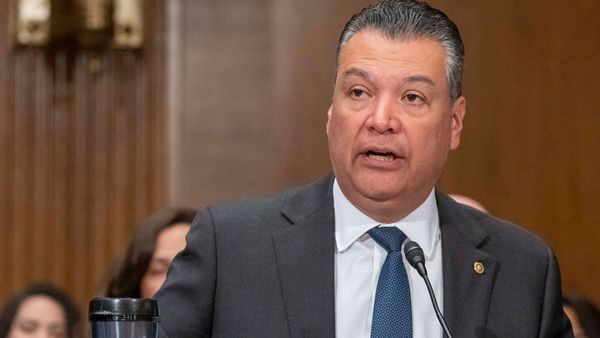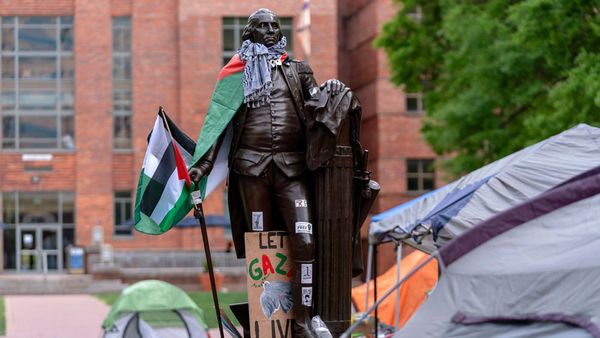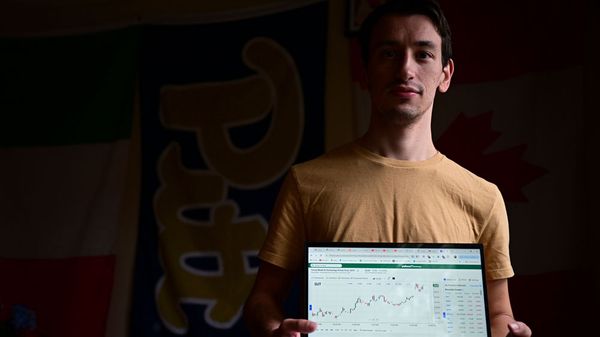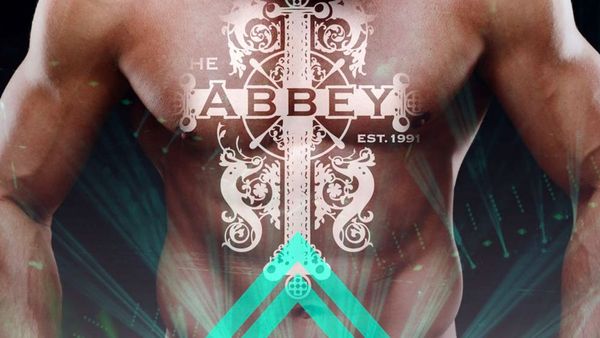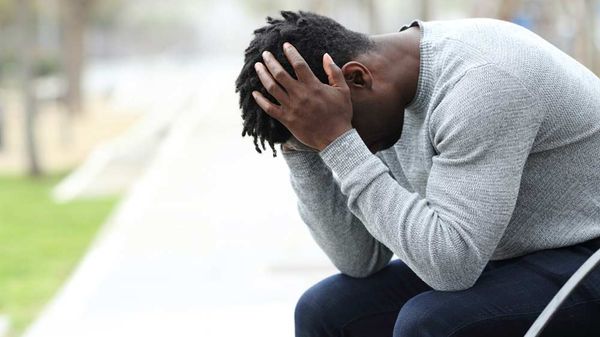April 12, 2010
The 'Ick' Factor: How Gay Sex Plays in the Equality Debate
Joseph Erbentraut READ TIME: 8 MIN.
The perception among many activists that pro-LGBT political advances have arrived at far too slow a pace in recent years has led to a great deal of finger-pointing. Some aim at the large "Gay Inc." national organizations. Others point to leaders of failed efforts to block same-sex marriage bans in California and Maine. Others cite America's long history of religious activism in politics.
In response to what some perceive as a failure of effective LGBT leadership, many queer activists have called for a strategic turn toward civil disobedience and direct action-oriented organizing, borrowing a page from the history of the African American civil rights movement.
Others maintain the path to federal equality is found in lobbying and keeping faith in the community's "fierce advocates" who hold public office. Still others find the path to equality in some nebulous middle ground between fiery radicalism and patient compliance.
All finger-pointing aside, most of the organizing strategies being trumpeted by activists have zeroed in on specific pieces of legislation as rainbow-hued lamp posts leading toward equality while dismissing the actual content of often hate-filled rhetoric used by the movement's adversaries to block LGBT people from any number of political victories.
We laugh as New Hampshire lawmaker Nancy Elliott explicitly describes the horrors of anal sex between two men in a public hearing on same-sex marriage, but fail to address the question of why a topic which holds no bearing on the legal discussion at hand would be offered by an elected public official in the first place.
In fact, Elliott may have inadvertently stumbled on the real reason why we're not winning full equality. Elliott's articulated disgust with the physiology of gay male sex may, in fact, be far more pervasive in our society than the far right.
A certain disgust with our sex lives may, in fact, have a far-reaching effect on our public lives, according to a respected academic.
The Essence of 'Ick'
Dr. Martha Nussbaum is a professor of law and philosophy at the prestigious University of Chicago's law school. She has termed Elliott's aversion to man-on-man anal sex "the Ick Factor."
According to Nussbaum's theory, those opposed to same-sex marriage, for example, maintain their beliefs largely due to an underlying, subconscious feeling of disgust at the thought of what defines "gay" as, well, gay -�as well as lesbian as lesbian: What is done in the bedroom.
Socially conservative, anti-gay political leaders capitalize on these feelings, transforming them, often, into victories in the voting booth. In many cases, they've been successful, providing ammo to activists who feel the attacks beg confrontation.
EDGE recently spoke with a number of queer leaders who responded to Nussbaum's wriggling-in-excrement factor of ick while strategizing an LGBT response to political rhetoric rooted in our bedrooms.
Dr. Nussbaum first arrived at her theory, further outlined in her recent book, From Disgust to Humanity: Sexual Orientation and Constitutional Law, through the work of philosophers William Miller and Paul Rozin. As Miller argues in the introduction to his seminal work, The Anatomy of Disgust, "Disgust and contempt play crucial political roles in creating and maintaining social hierarchy."
Nussbaum took that theory a step further and applied it, in the wake of Proposition 8, to the LGBT community. She then drew parallels to her theory's application in other political movements.
"I think [disgust] plays a part in lots of arguments against same-sex marriage," Nussbaum told EDGE, "those that use the idea that straight marriage will be 'defiled' or 'tainted' by the approval of gay marriage."
Disgust, she adds, has never been a non-issue: "All societies known to us have subordinated some group or groups of people by ascribing disgusting properties to them. This is a key feature of misogyny, of anti-Semitism, of historical Indian caste prejudice, of American racism and so forth."
'Ick' in the Ballot Box
The theory of disgust, Nussbaum argues, has reared its head continually in other anti-gay legislation through the years, ranging from issues like sodomy to non-discrimination statutes. It usually focuses on squeamishness on male-male sexuality and ignores the fact that many straight couples engage in kinky, non-traditional sexual practices.
In 1992, campaign literature in the battle that led to the passage of Colorado's Amendment 2, which barred communities from passing non-discrimination laws for sexual orientation, said gay men ate feces and drank blood.
More recently, the issue has come up in arguments against retracting the military's Don't Ask Don't Tell policy. There are those who say the presence of gay men in such intimate settings as changing rooms and showers would promote a large "response" in their heterosexual peers. After now-former U.S. Rep. Eric Massa's ticklegate scandal, in which anonymous former fellow Naval officers maintained that he came onto them, some argue that points to straight soldiers at risk, and that the "Ick Factor" will affect unit cohesion.
Feelings of disgust are also typically referenced in slanderous remarks openly gay and lesbian political candidates sometimes face, such as Gainesville, Fla. mayoral candidate Craig Lowe. Literature distributed anonymously through the city referenced Lowe's participation in a gender identity non-discrimination campaign in 2008, stating he is "'responsible' for legally allowing men into women's restrooms!" Further attacks toward Lowe have been issued by a local pastor who initiated a "No Homo Mayor" campaign.
How to Respond?
Obviously, someone making reference to eating feces and drinking blood is one thing. But how to respond to a "reasoned" argument that gay sex is inherently, well, icky?
Nussbaum's theory of disgust brings up a number of negative stereotypes of the gay community that, interestingly, many activists and organizational leaders won't come anywhere near. Several contacts within major LGBT organizations declined to comment for this story. That reluctance from some to confront vehemently anti-gay rhetoric is somewhat telling of both the current political climate - and perhaps the skittishness of LGBT leadership to confront the most fundamental issue of how much what we do in bed defines us, in whatever way the information is used.
Sue Sena co-founded New York-based SWISH, a "gay-straight alliance for adults" dedicated to reaching out to gain political allies to the LGBT movement. She admitted to EDGE she was hesitant to speak on the issue of disgust, describing the argument as a tired one she did not frequently encounter.
She sees the lack of new content to anti-gay voices' pronouncements as a sign they are running out of fresh talking points based in logic, rather than subconscious fears.
"I didn't want to give this sort of argument a lot of weight because, obviously, from our perspective it's a non-issue," Sena said. "Our position is that politics have no place in our bedrooms but that's the reality of the situation that we have to deal with these crazy thoughts."
Bigotry and the Bedroom
Andy Thayer, co-founder of the Gay Liberation Network, Chicago's direct action grassroots LGBT organization, agreed the "ick factor" rhetoric should not be ignored by activists. But he takes the theory with a grain of salt. He sees the rhetoric's appeal as a by-product of homophobia deep-seated in American society.
"As with other kinds of group-related bias, that homophobia is very deeply entrenched in our society and that kind of bigotry doesn't wipe away easily," Thayer said. "People may have a certain level of comfort with LGBT people, but if you scratch under the surface to the subconscious, there can be a wellspring of bigotry to be played on. And that's something the anti-equality movement has done."
It is true that in the past, black, Jewish and Italian men were portrayed as sex-crazed perverts. Such sexual demonization is not uncommon in attempts to portray a hated group as the "other." Go to any rabidly anti-Semitic website and you'll find caricatures of hook-nosed Jews salivating after pure-white maidens whom they can torture or "sodomize."
Thayer pointed to the efforts of anti-gay activists like Americans For Truth About Homosexuality's Peter LaBarbera to "expose" events like International Mr. Leather and the Folsom Street Fair as signs of a repulsive gay nature. But he feels the efforts are backfiring, as people like LaBarbera and Elliott are increasingly marginalized as extremists.
He sees that kind of effort - marking the spewers of anti-gay rhetoric as bigots - as a step in the right direction for activists. Look, he notes, at previous community victories over Anita Bryant, Laura Schlessinger, or John Briggs, who tried to have LGBT teachers banned from California schools - a fight that was dramatized in the film Milk.
"We need to successfully label the leaders of the other side as bigots," Thayer adds. "They certainly give us the evidence to do it. But even if we set up a perfect society tomorrow, people will still have these ideas in their heads and that kind of deep-seated bigotry will live on."
Natasha Dillon, an organizer with Queer Rising, a grassroots organization formed after the New York Senate's rejection of gay marriage last December, argues that disgust-oriented rhetoric needs to be countered by LGBT activist.
"I think a lot of our community doesn't want to believe they are part of a minority, they can live in Chelsea, for example, and get by without being treated poorly or feeling different," she complains. "And if you don't read the news, you can avoid the issue."
The issue of LGBT equality is dependent on forces that reaches deeper than legislation, lawmakers and protests. It is an issue that, ultimately, comes down to humanity.
"When people see gays and lesbians as full human beings, with wishes and projects related to their own, the disgust drops away," Nussbaum told EDGE. "This is now happening, as so many young people grow up knowing that their friends are gay and lesbian."
Darlene Nipper, deputy executive director of the National Gay and Lesbian Task Force, agreed. She sees media depictions of LGBT people today as vastly more positive than even two decades ago. Progress is something that should be ignored as a tool to overcoming the stereotypical rhetoric of disgust.
"We have to be realistic and understand that some people will have those feelings no matter what, but it's clear our society is moving forward toward supporting LGBT equality," Nipper told EDGE.
"We know that when people meet us, get to know us personally and meet our families, when we engage with people, it changes how they feel. It's very hard for people to hold onto that bigotry when they meet a human being simply going about their lives and having the same or similar dreams as they do," she continued.
Away From 'Ick' - Toward Common Humanity
When Sena met a new member of SWISH recently, she saw an example of exactly that. A straight man had recently gotten to know a gay friend and overcame his own threatening feelings. (SWISH, it should be noted, now includes straight men as well as women.) It is the sort of thing Sena would like to see more of, as straight men are encouraged to confront their ick-laced stereotypes while the gay community reaches out in kind - not only to "straight" causes, but many other sorts of social issues and to straight men in general.
"For many years, this fear was a notion he had held onto, that gay men were a sexual threat to his sexuality," Sena relates of her experience with her member. "But then he saw the power and humanity of a gay man being an advocate for him in something he was going through in his own life. I think when that humanity is present, nothing else matters."
"We need to partake in our country and world, not just being part of the gay community, but participating in every aspect of life," Dillon added. "If you're the only gay person a straight person ever encounters, they can still witness our humanity. And once that happens, they won't think about what we do in the bedroom."
As LGBT activists continue to fight any number of discriminatory laws and policies, it seems the path toward equality is, indeed, only half of the battle. While taking on the subconscious or expressed "Ick," leaders look toward a better world unrecognizable to a movement that continues to combat the hate and slander that ultimately leads to violence.
"I dream of a transformed society, beyond legal rights or equality," Nipper says. "Just like many other groups that worked toward that in the past, those who worked toward racial justice worked toward a broader idea that points toward a transformed society. We're in the process of doing that in the LGBT movement. When we get all the rights we've been fighting for, we still won't be done with the work we need to do."
But perhaps mainstream society will have moved beyond any "ick" when thinking of our private lives, which, after all, are just that: private.
Joseph covers news, arts and entertainment and lives in Chicago. He is the assistant Chicago editor for The Huffington Post. Log on to www.joe-erbentraut.com to read more of his work.

